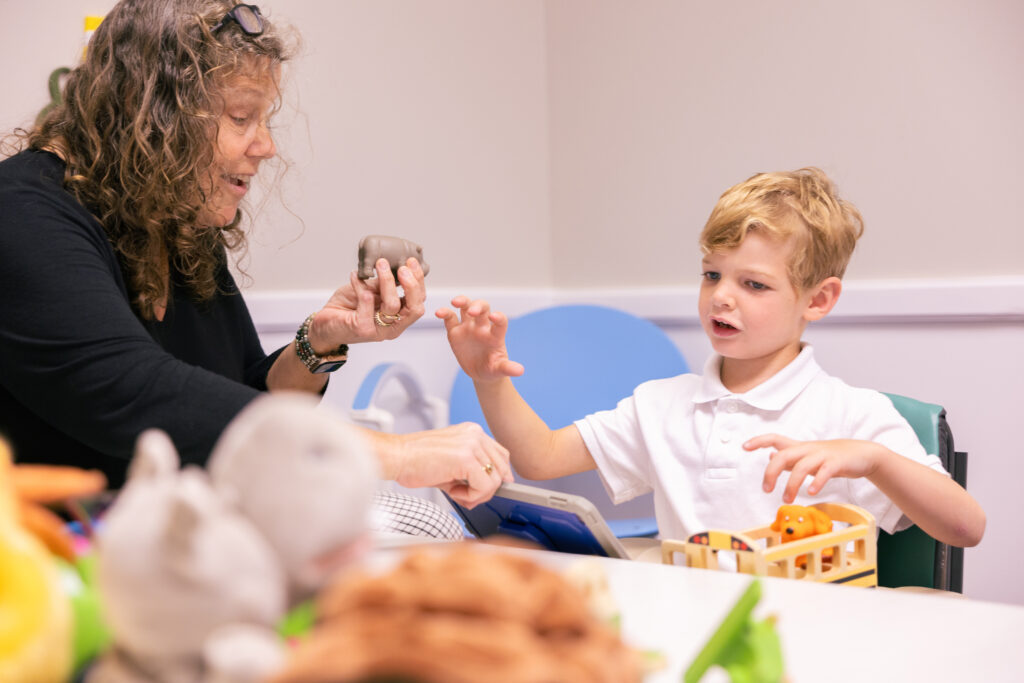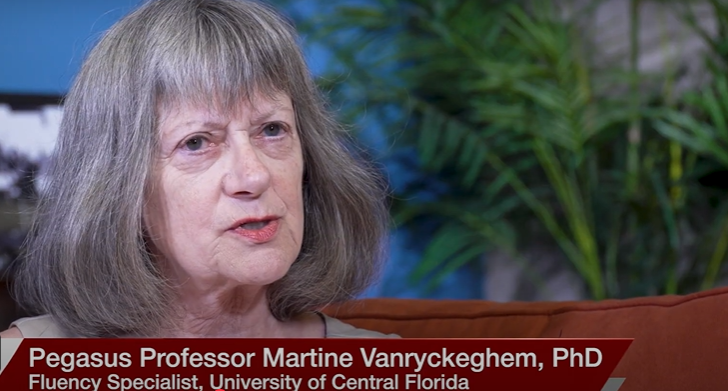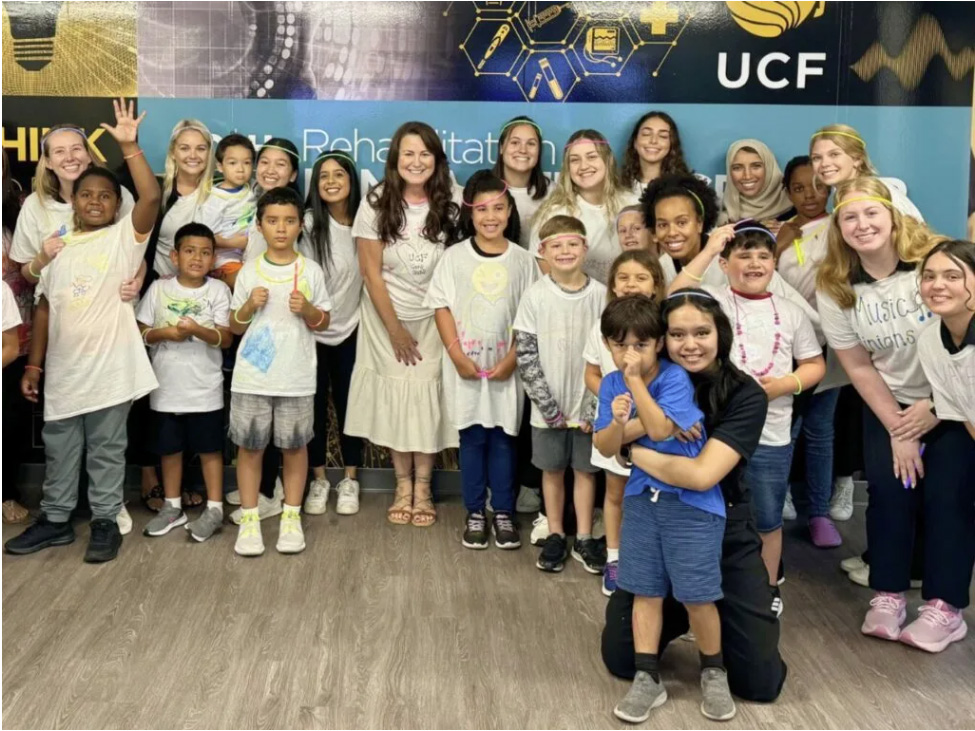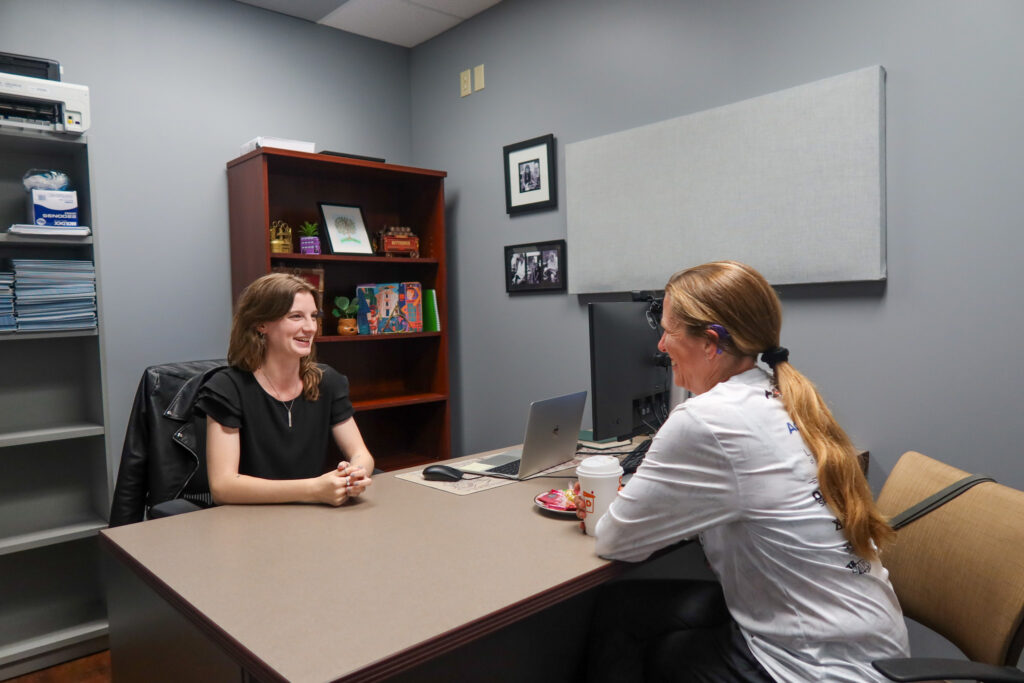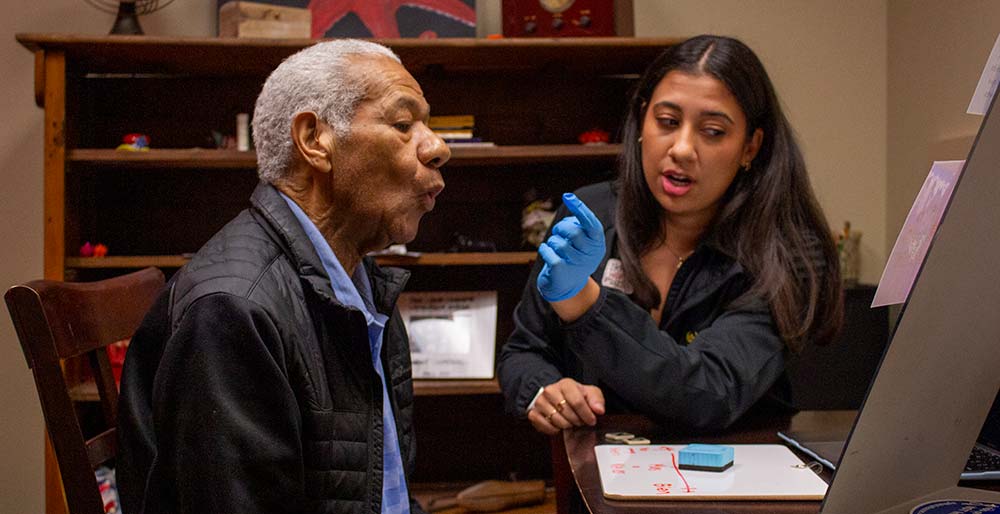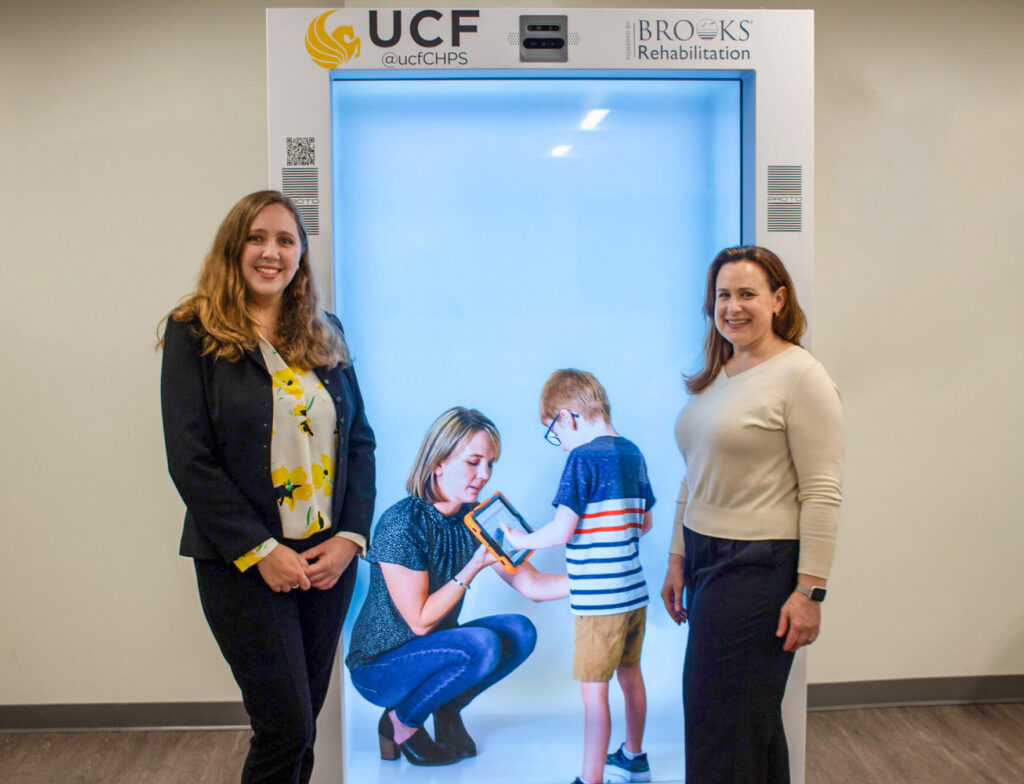
From newborns to adults, hearing loss affects Americans of all ages—but early intervention and treatment is routinely not occurring despite the potentially serious impact hearing loss can have on a person’s life. The UCF Listening Center at the Communication Disorders Clinic encourages the public to learn the signs of hearing loss and seek an evaluation if they have concerns—a timely message because May is recognized nationally as Better Hearing & Speech Month.
About two to three out of every 1,000 children in the United States are born with a detectable level of hearing loss in one or both ears; almost 15 percent of children ages 6–19 have hearing loss in one or both ears; and approximately 15 percent of American adults (37.5 million) ages 18 and older report some trouble hearing, according to government data. Although nearly all newborns are getting their hearing screened, many who are flagged with a potential hearing problem are not getting the follow-up care that they need. When it comes to adults, only approximately one in seven over the age of 50 with a hearing loss who could benefit from amplification uses a hearing aid.
“For children and adults alike, there are a variety of intervention and treatment options,” according to Linda I. Rosa-Lugo, associate professor in the School of Communication Sciences and Disorders, and founder and director of the UCF Listening Center. “It is important to address hearing loss early, as hearing loss uniquely affects people of all ages when left unaddressed.”
Rosa-Lugo continues, “Whether it’s a young child who misses the language exposure that is critical to their brain and communication development—potentially cascading into a lifetime of future academic and social challenges—to adults who experience career, social, and quality-of-life issues as well as a variety of other co-occurring health challenges, ignoring hearing loss is ill-advised.”
In children, signs of hearing loss include the following:
- Lack of attention to sounds (birth–1 year)
- Does not respond when you call their name (7 months–1 year)
- Does not follow simple directions (1–2 years)
- Shows delays in speech and language development (birth–3 years)
- Pulls or scratches at their ears
- Has difficulty achieving academically, especially in reading and math
- Is socially isolated and unhappy in school
In adults, signs of hearing loss include the following:
- Buzzing or ringing in their ears
- Failure to respond to spoken words
- Muffled hearing
- Constant frustration hearing speech and other sounds
- Conversation avoidance
- Social isolation
- Depression
Unaddressed hearing loss can affect people across the lifespan in the following ways:
Impact on Young Children’s Development: Hearing is critical to language, speech, and cognitive development and can impact communication and learning. Areas of development that hearing loss may affect if early intervention does not occur can include vocabulary, sentence structure, sound production and understanding speech.
Impact on School-Age Children: Children who have hearing loss that is left unaddressed can have problems with academics (may include problems with language arts and vocabulary; delays in reading, spelling, math, and problem solving; and lower scores on achievement and verbal IQ tests); behavior and social interactions (may include problems working in groups); and communication (may experience delays and/or difficulty with tasks involving language production and comprehension and/or memory).
Impact on Adults: Hearing loss can affect every area of an adult’s life, including physical health, mental health, career success, social life, personal relationships, and overall quality of life. A serious condition on its own, it is associated with other conditions, as well, including dementia, diabetes, falls, and depression.
Contact the UCF Listening Center at the Communication Disorders Clinic at ucfcommclinic@ucf.edu or call 407-882-0468.

